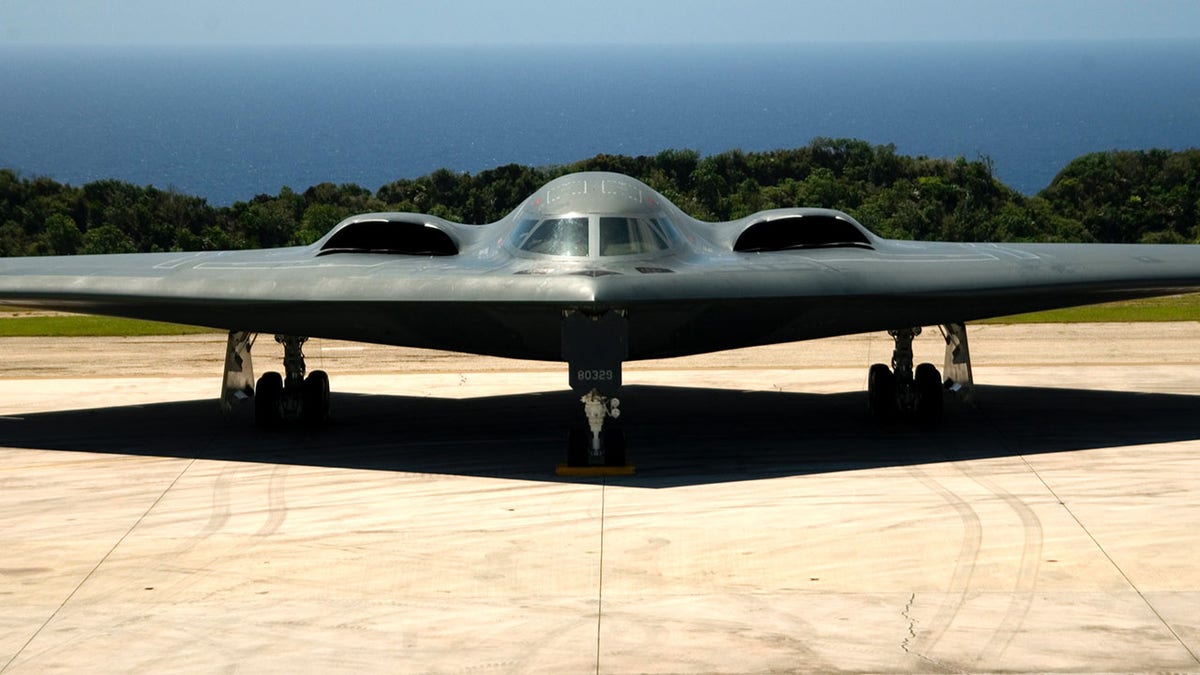[ad_1]
EXCLUSIVE: The new chairman of the House China Committee says there is an “alarming lack of urgency” from the Biden administration to adopt defensive measures to protect American military bases in the Indo-Pacific against potential attacks from China.
House China Committee Chairman John Moolenaar, R-Mich., who took the helm last month after the departure of Rep. Mike Gallagher, R-Wis., outlined his concerns in a letter to Air Force Secretary Frank Kendall and Navy Secretary Carlos Del Toro.
TOP REPUBLICAN SOUNDS ALARM ON US TERRITORY BEING ‘HIGHLY VULNERABLE’ TO CHINESE MISSILES
“American military bases in the Indo-Pacific are under threat. With its current strike capabilities, China can attack U.S. bases in the region, including those on U.S. territories of Guam and the Commonwealth of the Northern Mariana Islands,” Moolenaar warned, adding that a new unclassified analysis suggests China “has enough weapons to overwhelm our air and missile defenses protecting those bases.”
Moolenaar warned that strikes on U.S. bases “could immobilize vital air assets, disrupt logistical chains, and significantly weaken our ability to respond in a conflict.”

Rep. John Moolenaar is now the chairman of the House Select Committee on China. (Al Drago/Bloomberg via Getty Images)
Moolenaar said his committee received information that shows “an alarming lack of urgency by the Department of Defense in adopting defensive measures.”
“U.S. bases in the region have almost no hardened aircraft shelters compared to Chinese military bases,” he said. “In addition, a DoD regulation involving World War II-era munitions is substantially delaying and driving up the costs of construction projects in Guam and [the Northern Mariana Islands] aimed at building a more resilient posture for our forces to withstand Chinese attacks and continue operations.”
Moolenaar added: “We urge immediate changes.”
Moolenaar sent the letter to military leaders, along with a number of his congressional colleagues, including Sen. Marco Rubio, R-Fla.
Reps. Robert Wittman, R-Va., Blaine Luetkeymeyer, R-Mo., Andy Barr, R-Ky., Dan Newhouse, R-Wash., Darin LaHood, R-Ill., Neal P. Dunn, R-Fla., Jim Banks, R-Ind., Dusty Johnson, R-S.D., Michelle Steel, R-Calif., Ashley Hinson, R-Iowa, and Carlos Gimenez, R-Fla., also signed onto the letter.
Moolenaar and his colleagues said U.S. bases and air assets are “highly vulnerable to Chinese strikes.”

Sen. Marco Rubio during a hearing in Washington, D.C., on March 8, 2023. (Al Drago/Bloomberg via Getty Images)
“Unsurprisingly, in recent war games simulating a conflict with China over Taiwan, 90% of U.S. aircraft losses occurred on the ground, rather than from air combat,” he explained.
Moolenaar pointed to “passive defenses” as the most cost-effective way to improve security at bases, calling for hardened aircraft shelters, underground bunkers and more.
INFLUX OF ILLEGAL CHINESE MIGRANTS THREATENS US TERRITORY, ISLAND MUST SHOW ‘STRENGTH OF THE NATION’
“Robust passive defenses can help minimize the damage of missile attacks by increasing our forces’ ability to withstand strikes, recover quickly, and effectively continue operations,” he said.
Moolenaar explained that China has 800 hardened aircraft shelters, in comparison to the United States’ just 100 on bases in Guam, Mariana Islands, Japan and South Korea.
Moolenaar is now demanding the Pentagon officials provide information on the steps they have taken to enhance passive defenses to protect U.S. bases and forces in the Indo-Pacific, including in Alaska, American Samoa, Commonwealth of the Northern Mariana Islands, Guam, Hawaii, minor outlying islands, and allied and partner territory.
Moolenaar is also asking what plans the Pentagon has to create hardened shelters and bunkers to protect U.S. forces and whether they plan to request additional funding for base resilience construction projects.

A B-2 Spirit Stealth Bomber from the 393rd Expeditionary Bomb Squadron, Whiteman Air Force Base, Missouri, on March 24, 2005, at Andersen Air Force Base, Guam. (Bennie J. Davis/USAF via Getty Images)
“Our bases in the Indo-Pacific are unacceptably vulnerable to Chinese strikes,” Moolenaar told Fox News Digital. “We don’t have enough hardened shelters to protect our aircraft and personnel.”
Moolenaar told Fox News Digital that the Pentagon’s “own regulations are significantly delaying critical construction projects.”
“We’re years behind the mark to harden our bases,” Moolenaar told Fox News Digital. “Today, I’m imploring Pentagon leaders to begin this critical construction before China decides it’s too late.”
Moolenaar’s warning comes as his congressional colleagues have pointed, specifically, to Guam as a region in need of additional attention.
Guam is the westernmost U.S. territory in the Indo-Pacific region and home to about 170,000 U.S. citizens. The Department of Defense owns approximately a quarter of the land on Guam and has a military force of nearly 7,000 active-duty service members on the island.
Guam hosts Naval Base Guam, the Navy’s only submarine base in the western Pacific, as well as Anderson Air Force Base, a large air base able to host U.S. strategic bombers and fighters.
CLICK HERE TO GET THE FOX NEWS APP
But Guam is significantly closer to Beijing than it is to Hawaii, and is within range of nuclear-capable missiles owned by the People’s Republic of China and North Korea.
U.S. officials have warned that China has spent decades developing both short- and intermediate-range missiles that can target Guam.
[ad_2]
Source link





